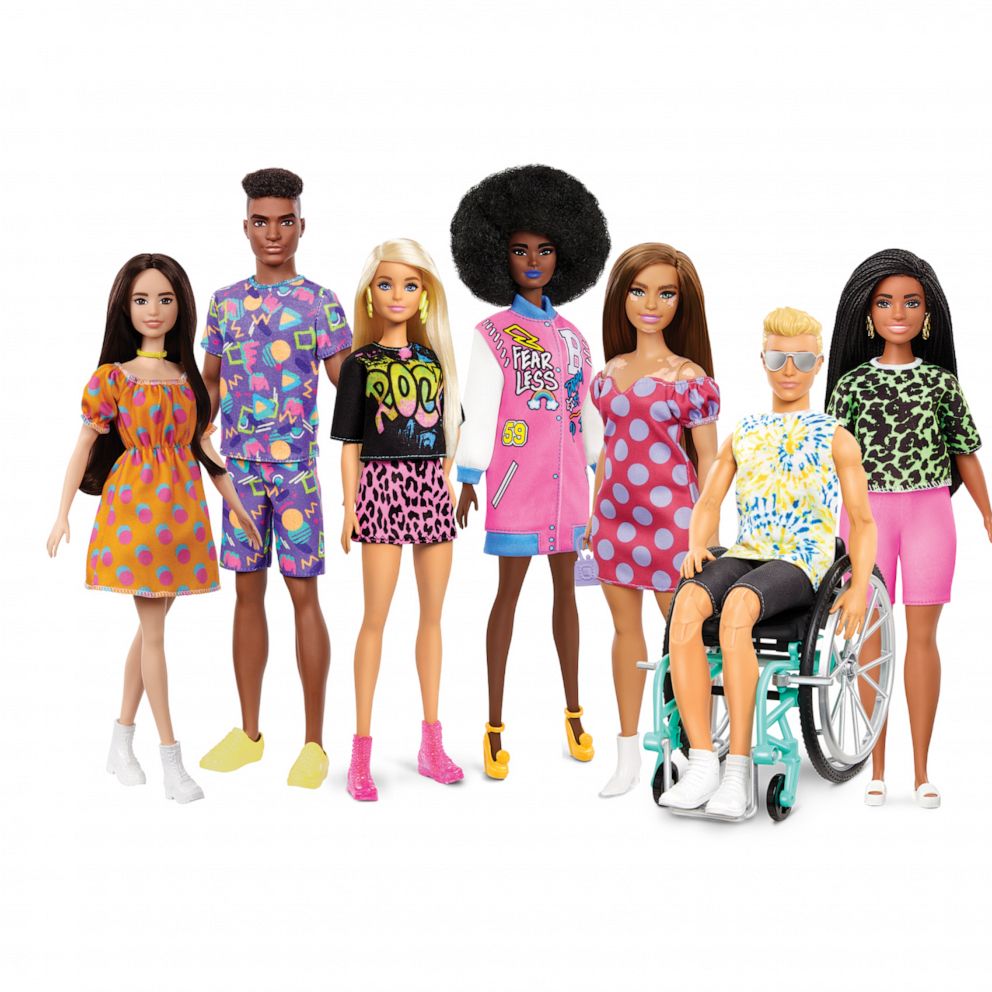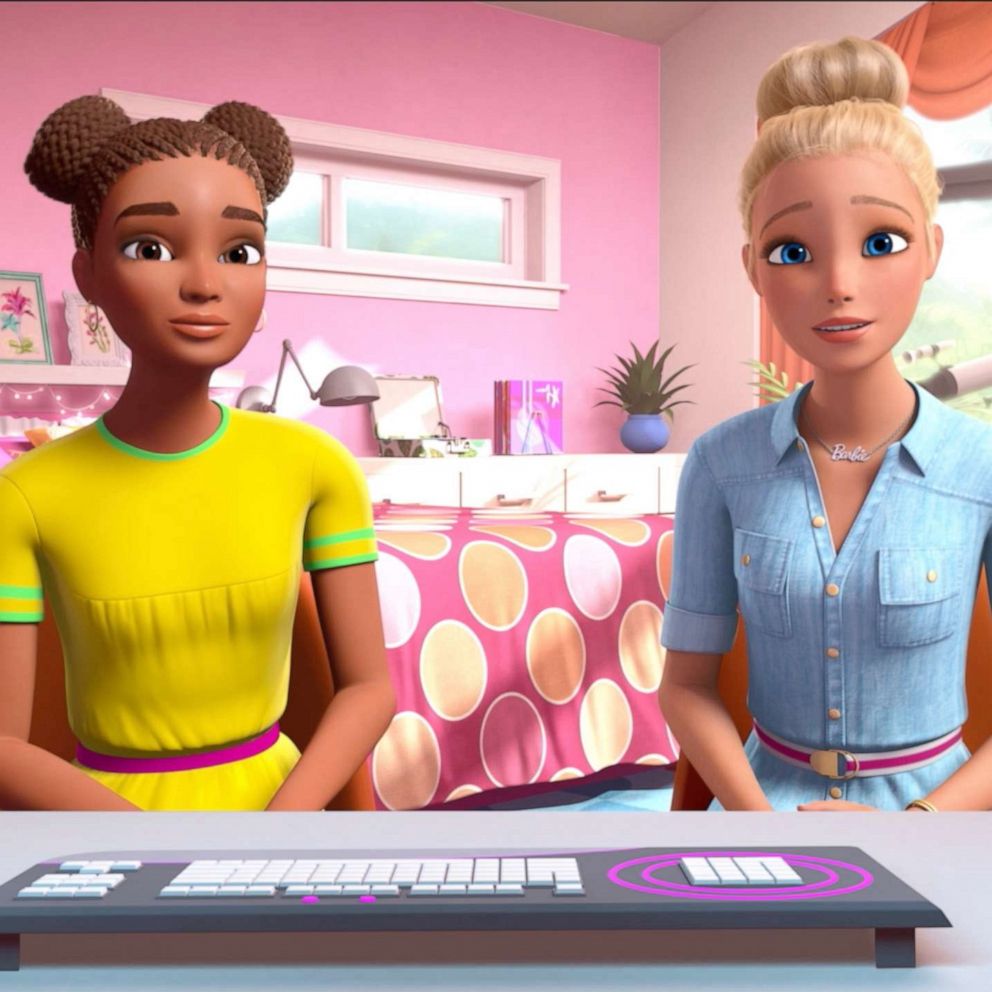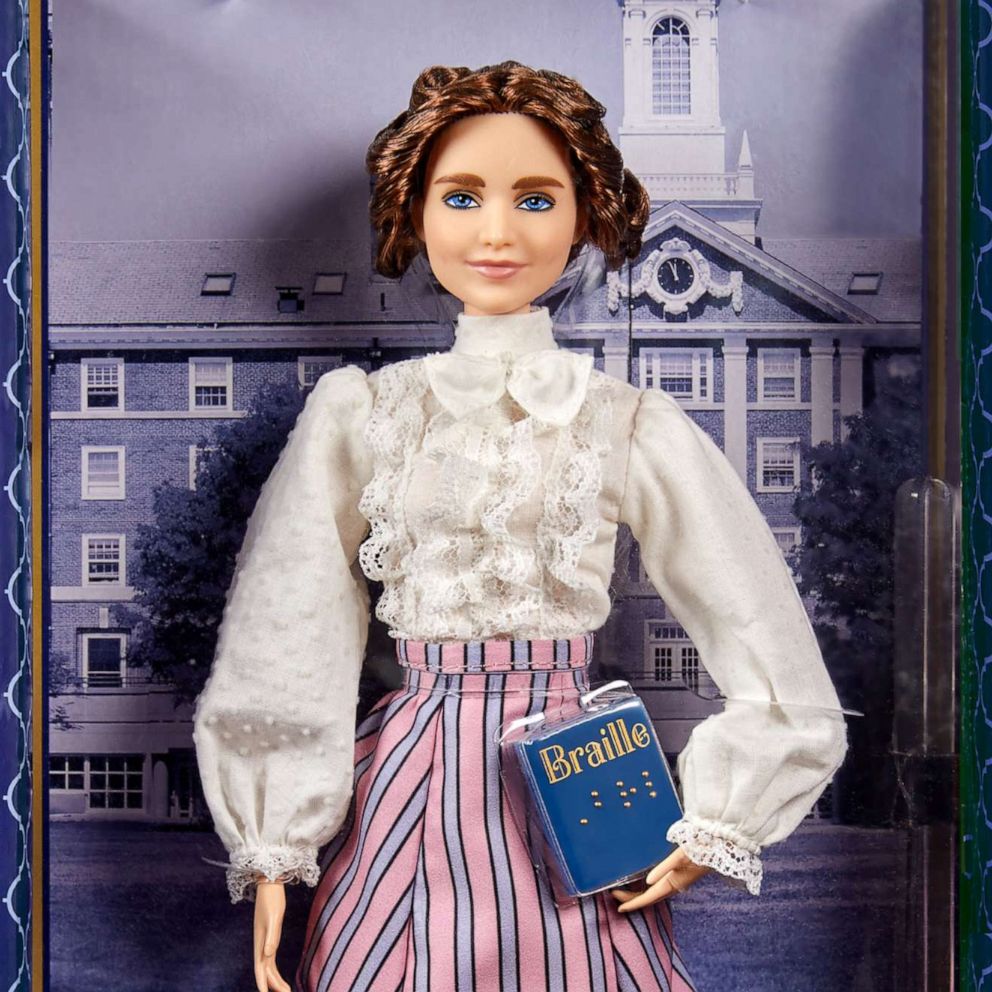AstraZeneca co-creator and other pandemic heroes honored with Barbie dolls
The dolls are a part of the company's #ThankYouHeroes program.
Toy company Mattel is spotlighting six women who have made an impact in their communities during the COVID-19 pandemic with their very own Barbie dolls.
The new dolls are a continuation of Mattel’s #ThankYouHeroes program, which launched last year as part of the company’s "Play it Forward" platform to honor people who are helping to fight the virus.
The six women are experts in their field who have shown "unprecedented courage during a challenging time," according to a Mattel press release. They are: Professor Sarah Gilbert from the U.K.; Amy O’Sullivan, RN, and Dr. Audrey Sue Cruz from the U.S.; Dr. Chika Stacy Oriuwa from Canada; Dr. Jaqueline Goes de Jesus from Brazil; and Dr. Kirby White from Australia.
“We are proud to use our global platform to share the incredible stories of resilience and determination of these six real-life heroes during such a challenging time," Lisa McKnight, senior vice president and global head of Barbie & Dolls, Mattel, said in an exclusive statement to "Good Morning America." "By elevating their leadership and accomplishments through Barbie, we hope to inspire the next generation of heroes to continue believing they can be anything.”
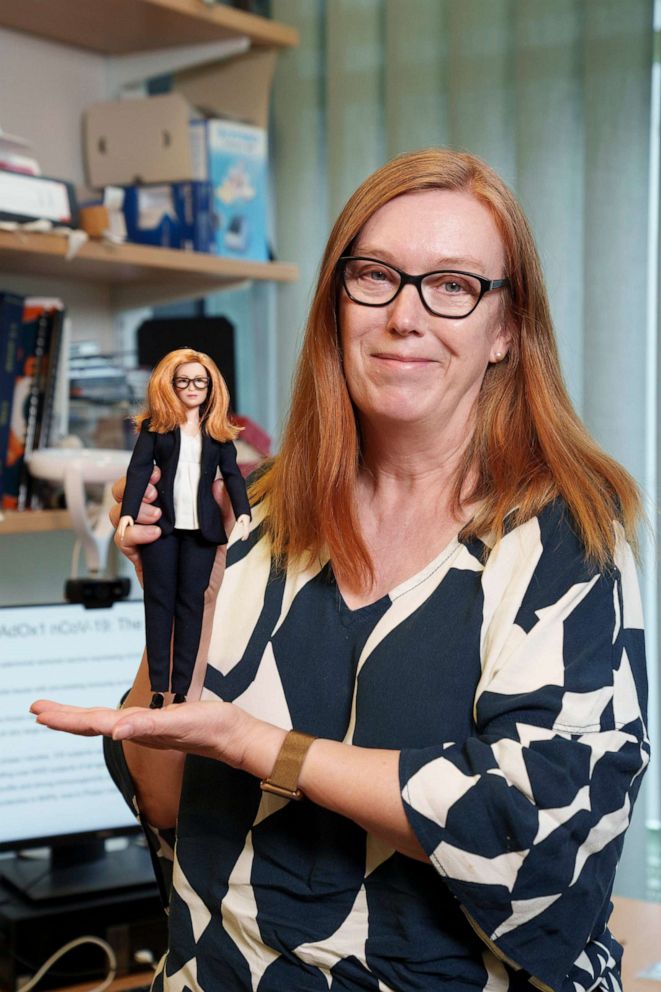
Gilbert, 59, is a professor of vaccinology at Oxford University in England. She was one of the co-creators of the Oxford/AstraZeneca vaccine.
In an interview for Mattel, Gilbert said, "It’s a very strange concept having a Barbie doll created in my likeness."
Gilbert hopes that the dolls will normalize STEM (science, technology, engineering, and mathematics) for girls and inspire them to pursue careers in science.
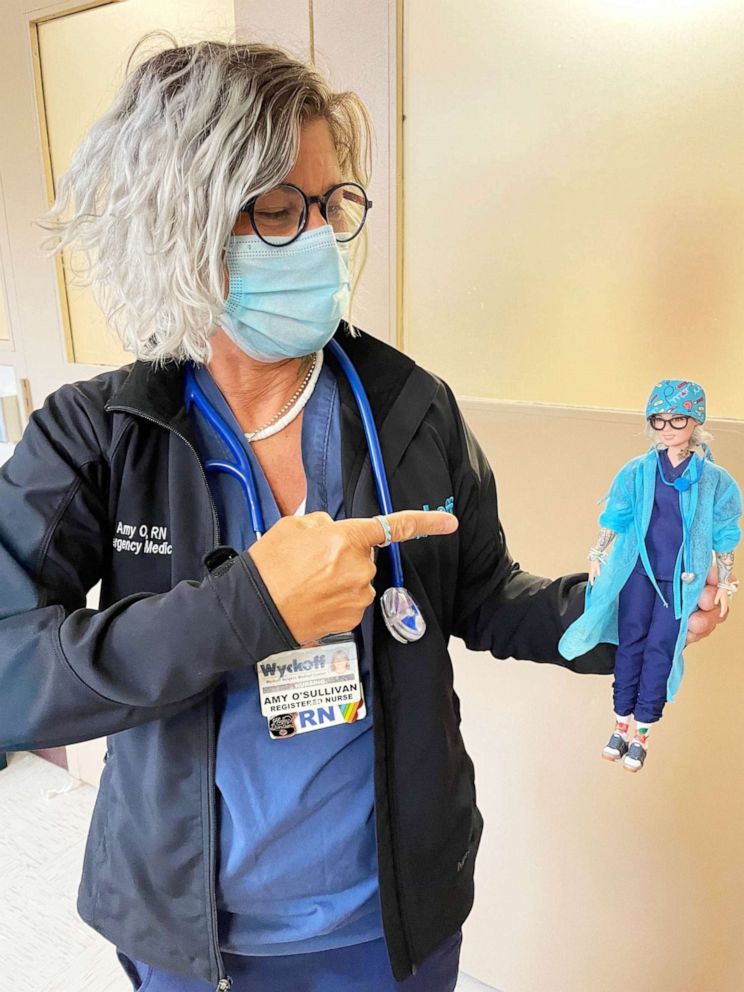
Sullivan, 58, has worked as an emergency room nurse for 18 years. She currently works at the Wyckoff Heights Medical Center in Brooklyn, New York. It was there that she treated the borough’s first patient with COVID-19 and became ill with the virus’ symptoms herself soon afterward.
Despite having to be intubated and put on a ventilator for four days, she returned to work just two weeks later.
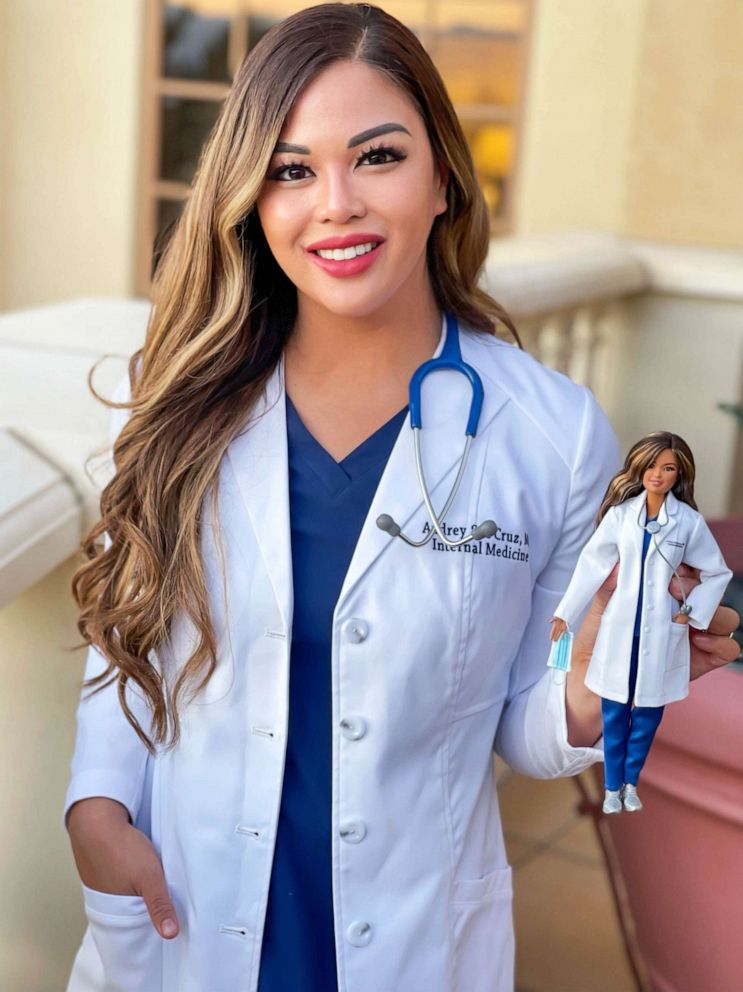
Cruz, 31, is an internal medicine physician in Las Vegas, Nevada. She worked together with other Asian American physicians to fight racial bias and discrimination.
In an Instagram post, where she shared the news of her Barbie doll, Cruz said, "I hope to represent minorities in America and encourage cultural advocacy. I hope to represent working moms who are balancing their careers while raising a family. And I hope to show all young women that they can be ANYTHING they want to be — even a physician mom and engineering grad like this girl."
Oriuwa, 27, is a psychiatry resident at the University of Toronto. She has spoken out against system racism in health care as well as a rise in online racism.
In an Instagram post, Oriuwa said, "It’s surreal to think that I was once playing with my Barbie dolls and dressing them up like doctors, poets and performers and imagining that I could be those things one day — and now I am!"
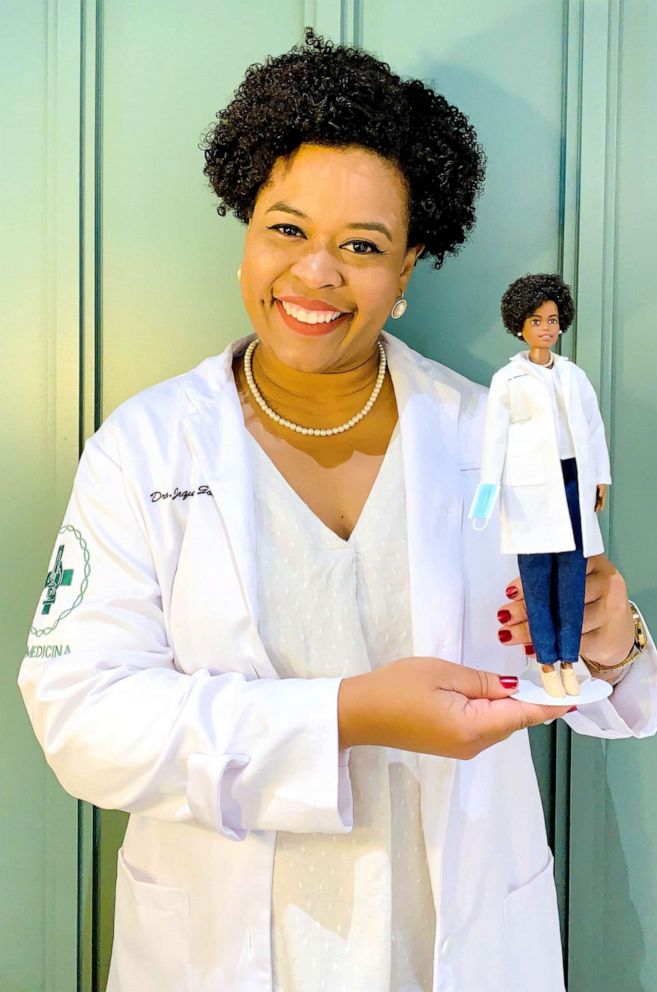
Goes de Jesus is a biomedical researcher and post-doctoral fellow for the CADDE Project. She led the sequencing of the genome of a COVID-19 variant in Brazil.
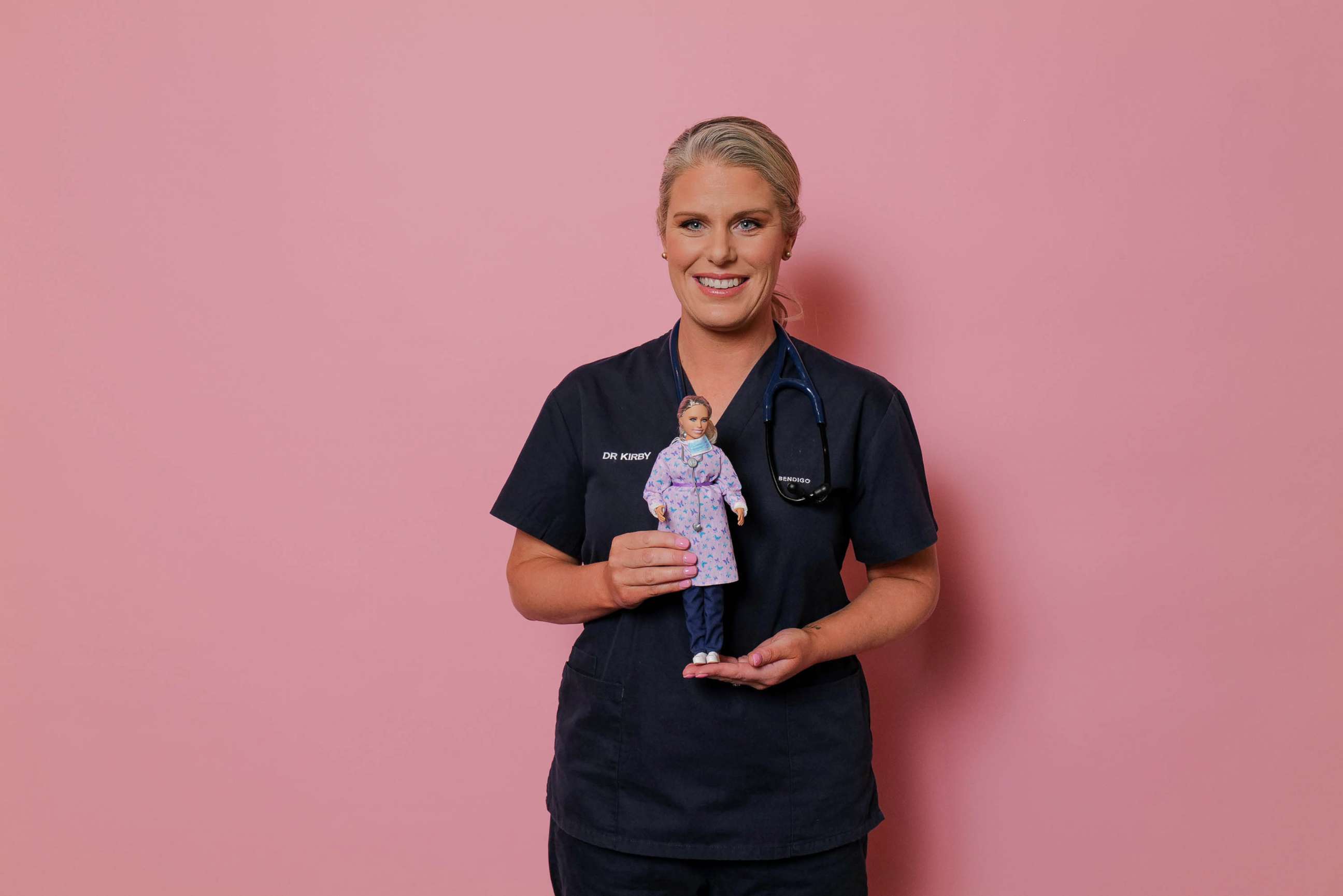
White is a general practitioner and co-founded Gowns for Doctors when the pandemic caused a nationwide shortage of PPE in Australia. The project aims to provide doctors with the necessary protective gowns they need to work and developed a washable and reusable gown to that end.
Mattel also announced that it will donate $5 for each eligible Barbie doctor, nurse and paramedic doll sold at Target to the First Responders Children’s Foundation, which provides financial support to children who’ve lost a parent in the line of duty.
